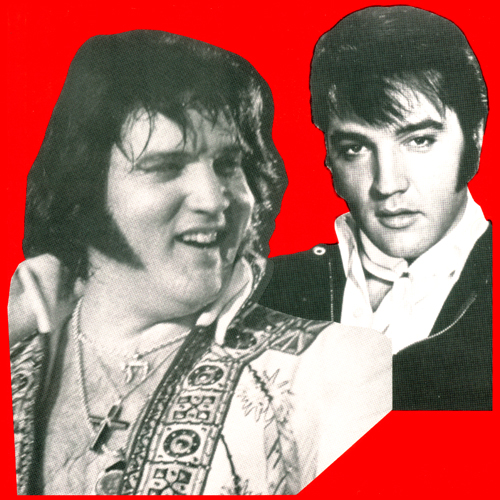Sun King American Style
On the 30th Anniversary of Elvis' Death. An essay by Arthur Kroker.
 Elvis as a cynical commentary? Or the outbreak in Memphis, Tennessee, deep in the heart of the heart of the country, of a more primitive Jungian archetype -- the Sun King?
Or both? A cynical commodity to such a point of excess, hysteria and exhaustion that Elvis actually disappeared into his own promotional culture. The Elvis commodity, then, achieving such a global degree of cynical exchange-value that that heartbreak voice, the sneer, the DA hair, and the rock 'n rollin' legs on stage with that guitar, and the screaming fans actually vanished into a massive black hole. As it grew more heated and intensive, the Elvis myth burst into a final brilliant luminosity, exploded inwards with a fantastic density of energy, and then settled down through the '70s and the '80s as a steadily-flashing cultural pulsar. What emerged from that cultural pulsar (the final stage of a dying star) were the five faces of Elvis: sometimes movie star (Blue Hawaii), confirmed rock 'n roll heart-throb; good ol' southern boy playing with his buddies; unpredictable philanthropist to the poor; and a real '50s sex symbol. And just like Marilyn Monroe and Jimmy Dean before him, Elvis can still attract such necrophiliac fascination because he was always a promotional simulacra which could be wrapped around any passing mood. Thus, in the '70s, it was Elvis' death as a tragedy, and in the '80s a nostalgia feast for our own time passing. In the end as in the beginning, he was the perfect fusion of voice, autobiography, commodity opportunity, and national mood. Link
posted by johannes,
Wednesday, August 22, 2007
[The Archives]

.
.
.
.
.
|
.
.
.
|